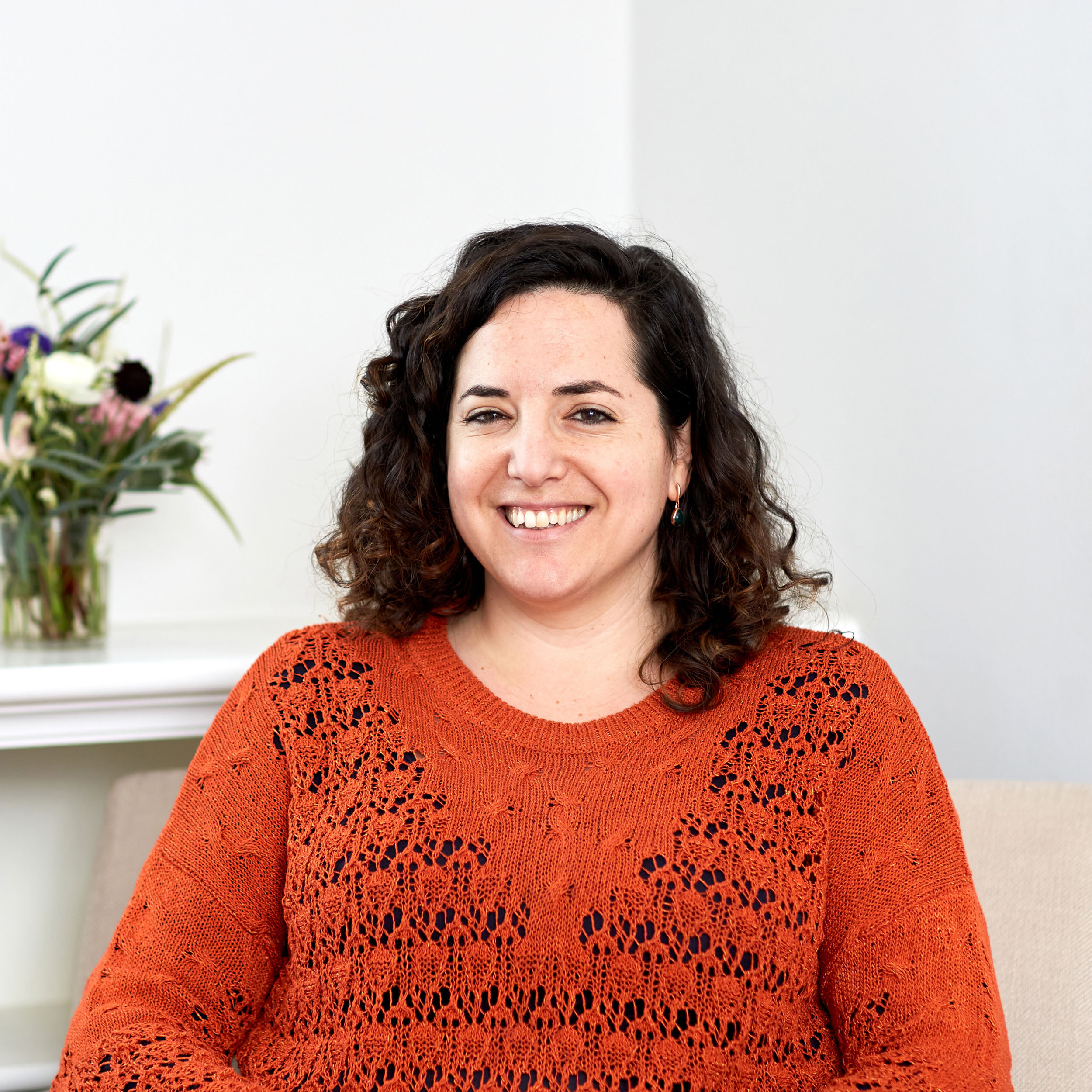Receiving an autism assessment in London
If you’ve been facing social challenges, sensory sensitivities, or noticing that your way of communicating seems different to other people, these could be signs of autism spectrum disorder (ASD) – a condition that has historically been overlooked.
Our autism assessment is specially tailored to offer you insight and understanding into the unique way your brain works.
Our assessment goes beyond just providing a diagnosis – it’s an opportunity to recognise and celebrate your unique strengths. We aim to empower you with strategies to navigate challenges more effectively, helping you better understand yourself and how you interact with the world around you.
Contact Us

Am I autistic? Signs of autism in adults
Understanding autism can be complex, especially as it manifests differently in different people. If you’re wondering whether you or someone close to you might be autistic, it can be helpful to start with some of the more widely recognised signs, and then consider some of the less typical signs which are sometimes overlooked.
- Social interaction: You might find social situations challenging, have difficulty understanding body language, social cues, and/or struggle to make and maintain friendships.
- Communication difficulties: This could include delayed speech development, difficulties in initiating and holding conversation, or challenges in understanding tone and expressions.
- Repetitive behaviours and following routines: You may prefer strict routines and get stressed when things are changed suddenly, or do not go according to plan.
- Intense interests: You might have deep, focused interests in one or a few particular subjects or hobbies.
- Sensory overwhelm: You may get overwhelmed by certain sounds, lights, textures, or temperatures.
While these are some of the more typical signs associated with autism, there are also some overlooked signs
- Hyper empathy: Despite stereotypes, some people with autism are highly empathetic and can read other people’s emotions well. This can make you a great listener, although you may feel like you’re following a social script. Even if you don’t struggle with making friends, you may still feel a sense of distance and disconnection.
- More subtle sensory sensitivities: Sensory sensitivity in autism isn’t always about obvious distress. It can be subtle, like feeling rigid or uncomfortable on public transport e.g. if people sit too close or speak in a loud voice.
- Obsessive traits and overplanning: Intense planning or a need for control, sometimes mistaken for OCD traits, can be ways to manage sensory or social overload.
- High standards and masking: Feeling a need to conform to societal expectations can lead to ‘masking’ your autistic traits. This is particularly common among women, who may be more attuned to social acceptance and be better at hiding their symptoms. This masking can be exhausting and lead to feelings of insecurity and low self-esteem, as you may have spent a long time subtly invalidating your own internal dialogue and experiences.
The benefits of an autism diagnosis
Initial screening
Getting an autism diagnosis can be a life-changing moment for many, often bringing a sense of relief and deeper self-understanding. Here are some of the key benefits:
Self-understanding and acceptance – many feel a profound sense of relief after receiving a diagnosis. A diagnosis provides a framework for understanding your experiences and behaviours. This new understanding of yourself can lead you to treat yourself more kindly, and it can also open the door to deeper self-awareness and personal growth.
Sense of belonging and community – a diagnosis can also connect you to a larger community of people with autism. There’s a growing neurodiversity affirmative movement that sees autism as a neurological difference rather than a disorder or deficiency – a natural variation in the human experience, which is neither inherently positive nor negative.
Empowerment in disclosure – choosing a private clinic for your diagnosis can offer control over who knows what about you. This can be particularly beneficial when considering whether to inform an employer or your university. Unlike a diagnosis through the NHS, which becomes part of your medical record, a private diagnosis gives you the power to decide who gets to know and when.
Workplace and educational accommodations – with a diagnosis, you can request adjustments at work or university to better suit your needs. This could mean changes in your workspace, flexible working hours, or specific learning accommodations, all aimed at making your day-to-day life more manageable.
Simply put, an autism diagnosis can be a gateway to better understanding yourself, finding your community, and navigating life more effectively. It’s about knowing yourself, embracing your unique way of experiencing the world, and making informed decisions around how you share your neurodiversity with others.

Getting an adult autism test - what to expect
Understanding what’s involved in an autism assessment can make the process feel less daunting. Here’s a step-by-step guide on what you can expect:
Initial screening
To start, you’ll speak with a member of our clinical triage team over the phone. Following this, we will ask you to complete a screening questionnaire that we send via email. Our team will review your responses and then let you know if a full assessment seems appropriate for you.
Diagnostic observation
We carry out a semi-structured observation using the ADOS-2 (Autism Diagnostic Observation Schedule) with a specialist in ASD/ASC. This session, lasting about 2 hours, focuses on communication, social interaction, and imagination in a direct and objective way. It takes place in-person.
Developmental history interview
This part involves a detailed conversation with you and an ‘informant’ – ideally a family member who knew you during your childhood. They can provide valuable insights into your developmental history and early years. If finding an informant from your childhood isn’t feasible, we can discuss alternative options like a long-term partner or friend. This appointment also lasts around 2 hours and can happen online or in-person at our clinic.
Psychometric measures
As part of the assessment, you’ll complete additional psychometric measures, specifically recommended for you. These further build upon the information already gathered.
Review
Our specialists will review all the information and decide on the outcome. They will then begin to prepare a detailed report, which will outline the results and indicate whether you meet the criteria for an ASD/ASC diagnosis.
Feedback session
In this session, we’ll share the outcome of the diagnosis and discuss the recommendations detailed in your report. This session is scheduled after the assessment and is an opportunity for you to understand the findings and what they mean for you.
How much does an autism assessment cost?
Our autism assessment package costs £2250. This includes:
2 hour diagnostic observation appointment (ADOS-2)
2 hour developmental history appointment (comprised of 1 hours with the client and 1 hour with the informant)
1 hour feedback session, and a report sent a few weeks after this final session
Frequently asked questions
Understanding autism: is autism a genetic disorder?
Autism often has a genetic basis, meaning it can run in families. What this means is that some of the unique challenges you face, or the particular ways you feel and respond to things, could be tied to how your brain is wired. This wiring is influenced by your genes, the same way your eye colour or height is.
It’s essential to recognise that these differences in brain wiring are a natural part of human variation. Just like the diversity in culture, language, or physical abilities, the way brains develop in autism is simply another aspect of what makes us all unique. People with autism might experience the world, connect with others, or process information in their own distinct ways. It’s a testament to the fact that human brains can develop in various ways, and with unique patterns and characteristics.
Understanding autism as a part of neurological diversity helps us appreciate the full spectrum of human variation. It’s about seeing neurological differences, including autism, as an integral – and positive – part of the human experience. This perspective helps us be more accepting and inclusive. It shows us the importance of valuing the unique strengths and challenges of people with autism, recognising the invaluable perspectives they bring to our diverse world.
Following your appointment, you will see one of our specialists in this area who will determine whether you meet the criteria for these diagnoses using a range of specialist tools and clinical interviews.
How to treat autism: what are my options?
Treating autism, especially if you’ve received a diagnosis later in life, requires a personalised approach. It’s about providing support for the years of masking and adapting you may have gone through, often without having your unique needs fully recognised or met.
An important part of treatment involves therapy that focuses on self-understanding. Your therapy will focus on helping you explore and navigate your identity, understanding how you perceive the world, and how you communicate. It’s a journey to uncover the authentic ‘you’, especially if you’ve spent years adjusting your behaviour to fit with societal norms.
Managing sensory difficulties and emotional regulation will also make up a key part of treatment. Many people with autism experience sensitivities and emotional dysregulation. It’s important to understand that these aren’t inherent aspects of autism but rather responses to feeling overwhelmed or stressed. Therapy can provide strategies to manage these sensitivities and help you regulate your emotions more effectively.
In sessions, we’ll explore strategies to enhance communication skills, improve emotional understanding, and develop coping mechanisms for stress and anxiety that are specifically tailored to you. This includes helping to identify and modify patterns of thinking and behaviour that may be impacting your relationships or work experiences, using a combination of Dialectical Behaviour Therapy’s skill-based approach and Schema Therapy.
For those diagnosed as adults, there’s often a journey of self-discovery ahead. Many haven’t had the opportunity to fully explore who they are or to develop an authentic identity that reflects their true selves. Therapy can offer a supportive space for this exploration, helping you build an identity that feels genuine and fulfilling.
Treating autism is not about changing who you are but about supporting you to live your life in a way that is authentic for you. It involves equipping you with the tools and understanding necessary to navigate life’s challenges while honouring your unique perspectives and experiences.
What are the subtypes of autism?
When we talk about autism we often hear about the idea of a spectrum, but a more accurate representation might be to think of it as a wheel, encompassing a continuum of diverse experiences and needs. In this wheel, everyone with autism is unique, and they experience things in their own way – this includes how they handle sensory stimuli like noise and lights, how they talk and communicate with others, how they understand other people’s feelings, and even how they move.
Some people with autism might find certain lights or sounds really overwhelming, for example, while others might not be bothered by them at all. In terms of talking and understanding others, some might find these things challenging, while others might not have as much trouble. And just like anyone else, physical coordination can vary too – some people might find certain activities like sports or handwriting difficult whilst others may not.
It’s also important to remember that the kind of support someone with autism needs can change from day to day. It’s not about thinking of autism as ‘mild’ or ‘severe.’ Instead, it’s about understanding what each person needs at different times to help them feel comfortable.
Understanding autism as this wide range of experiences and traits allows us to fully appreciate each person’s uniqueness and tailor our support to their specific needs.
How much does an autism assessment cost?
Our autism assessment package costs £2100. This includes:
- 2 hour diagnostic observation appointment (ADOS-2) – £1000
- 2 hour developmental history appointment (comprised of 1 hours with the client and 1 hour with the informant) – £850
- 1 hour feedback session, and a report sent a few weeks after this final session – £250
Do I need a referral from my GP?
No, you don’t need a referral from your GP. You can self-refer for an autism assessment, which simplifies the process and allows you to do the assessment whenever you feel ready.
Getting a late diagnosis of autism - is this common?
Yes, it’s quite common to receive a diagnosis of autism later in life, especially among women, though it’s not uncommon in men either. Historically, the diagnostic criteria for autism has sometimes missed the less stereotypical presentations of autism which are more widely acknowledged and accepted today. Autism is a very varied condition, and our growing knowledge about how to understand and diagnose it has led to more adults being diagnosed in recent years.
How is autism different in women?
Women often have a heightened awareness of being socially accepted, which can sometimes make them better at masking their autistic traits. While many women with autism may handle socialising fairly well, they are likely to struggle with self-monitoring, anxiety and a fear of judgement. This can sometimes make autism in women a little less obvious and more challenging to diagnose.
Our Team -Specialists in ASD


